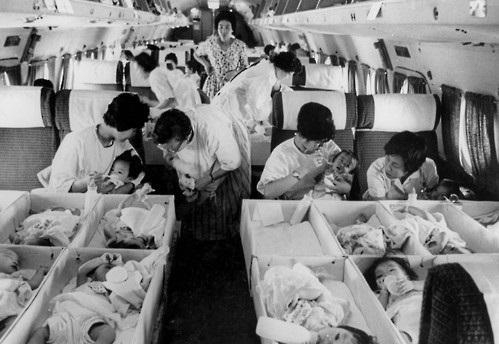South Korea ends the controversial practice of ‘exporting’ adoptions
A new law will end a practice that began after the Korean War and lasted for decades. The process will now pass from private agencies to the state, in accordance with the Hague Convention. However, some issues remain, including the need for more legislative action and budgetary support from the country’s new administration.
Seoul (AsiaNews) – Within the next few days, South Korea is expected to officially put an end to the decades-old practice of allowing private agencies to manage and regulate child adoptions that gave rise to the "child export" business.
Now, South Korean lawmakers will usher in a new era in which the state takes on primary responsibility for the entire process, basing it on the principle of public oversight and the protection of children's rights.
Such a change goes far beyond mere bureaucratic practice, experts explain, but represents a historical achievement; for over 70 years after the Korean War (1950-1953), the country's authorities allowed the adoption of more than 170,000 South Korean children abroad.
This number might be even closer to 250,000, according to some studies, if unofficial data are considered, making South Korea, unwittingly, one of the most prolific "exporters" of children in the world.
After the end of the war, with the country extremely impoverished and devastated, the newly formed government entrusted adoptions to private agencies, exercising minimal supervision over foreign adoptions, as the report by the independent Truth and Reconciliation Commission found.
In many cases, children were taken without their mother's consent, or false stories of abandonment were fabricated to suggest they had lost their parents during the war. Others had their names changed. All this fuelled a profit-driven business.
Lacking adequate legal protection, many South Korean adoptees, now adults, have never been able to trace their birth families.
Only in recent years has the country moved to tighten adoption procedures, passing a law in 2023 that will come into effect in the coming days, placing the adoption process into the hands of a government ministry.
Under the new system, domestic and international adoptions will be regulated separately by two separate laws: the Special Act on Domestic Adoption and the Act on Intercountry Adoption. Both were approved by the National Assembly in 2023 and will come into effect next Saturday, 19 July.
With these changes, the Ministry of Health and Welfare becomes the primary authority and guarantor of adoption policies, while local governments and the National Centre for the Rights of the Child (NCRC) will directly supervise the procedures.
“From July 19, the state, local governments and the NCRC will carry out what private adoption agencies have handled until now,” the NCRC said in a written response. “All procedures will be based on the best interests of the child, as laid out in the Hague Adoption Convention.”
For domestic adoptions, the Ministry's Adoption Policy Committee will review and approve child matches, with the NCRC serving as the secretariat.
Furthermore, courts will continue to issue final adoption approvals and now have the power to authorise temporary custody before final approval, to support early bonding.
In international adoptions, the state becomes the official "central authority," responsible for overseeing both outbound adoptions (South Korean children going abroad) and inbound adoptions (foreign children adopted in South Korea).
For many old adoptees, documents are sometimes just a handwritten note or a decades-old intake form, the only remaining link to their birth families and origins.
With the state taking over, these documents can now be transferred from private agencies to the NCRC, but some argue that the process has been opaque and confusing. And, despite the reform, structural and logistical challenges loom.
As of mid-2025, the state has received original documents from only four major adoption agencies; others have not yet been located, and secure and permanent storage remains an issue.
The government is committed to building a permanent adoption archive, but no timeline has been announced. Meanwhile, access to documents remains severely restricted.
The move to public adoption coincides with South Korea’s long-delayed ratification of the Hague Convention on Intercountry Adoption, which is expected to enter into force at the end of October.
Adopted globally in 1993, the convention seeks to prevent child trafficking and ensure ethical standards in intercountry adoptions.
South Korea signed the treaty in 2013 but failed to ratify it due to a misalignment with domestic legislation, a gap now filled by the 2023 law.
The path ahead remains uncertain. Many of the changes will require further legislative action and budgetary allocations from the new administration elected in the 3 June presidential vote.
12/02/2016 15:14
12/07/2022 15:33
21/06/2006
20/09/2018 12:52







.png)










